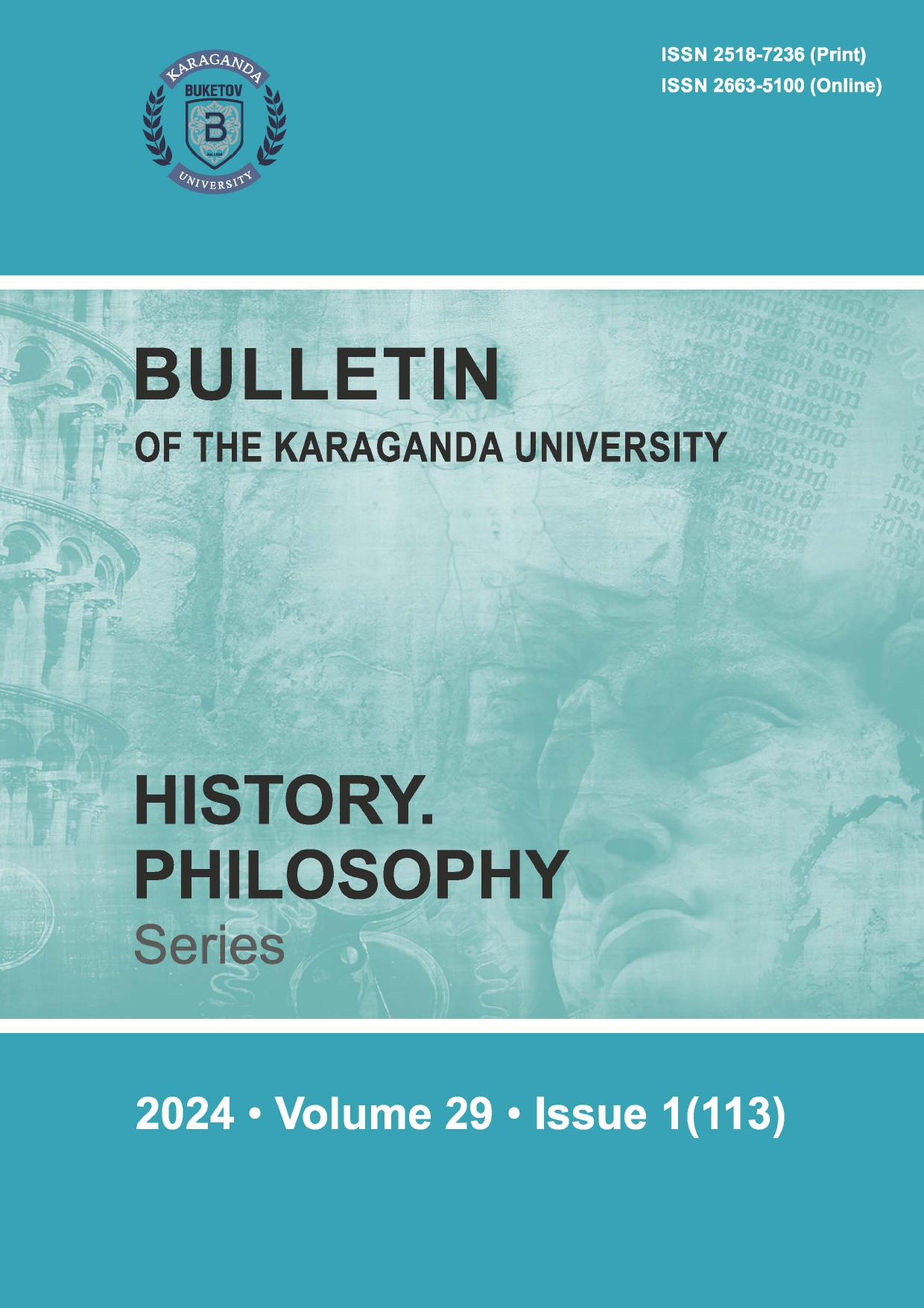The main methodological approaches and research attitudes in the context of the formation of a new culture of social activity
DOI:
https://doi.org/10.31489/2024hph1/218-224Keywords:
methodology, tolerance, conflict, social reality, state, society, personalityAbstract
In this article, the author explores the most productive methodological developments from his point of view, which allow a more comprehensive look at the nature of the cultural foundations of social activity. The author suggests the advantages and disadvantages of a number of methodological approaches, gives an assessment of their scientific effectiveness. Analyzing these approaches, the author speaks about the need to adjust them in accordance with the demands of time, the risks of modern transformational processes. The main conclusion reached by the author is related to the assessment of cultural diversity as the most important factor and condition for the comprehensive development of society in general and man in particular. The author offers a history of research on methodological approaches, which, from his point of view, give a fairly complete picture of the nature and content of the cultural foundations of various forms of social activity. The most effective methodological constructs will make it possible to determine the main priorities for correcting, reforming social activity, deepening its ideological foundations and forming a wide variety of concepts and discursive practices. This formulation of the question corresponds to the main research trends, ensures the correct vectorality of cognitive activity in this problematic space. The author pays special attention to the correlation of different cultures as the most important factor in further development. However, in practice, this diversity sometimes leads to opposition, sometimes reaching a high level of aggression and rejection. The author defines his position by assessing tolerance as the most important condition for the humanistic development of society.




